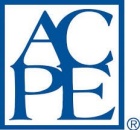HIV Pharmacotherapy Continuing Education 2023 program
Home Study Activity - Earn 18 contact hours (1.80 CEUs.)
Two Live Case Study Sessions (via Zoom) - Earn 1 contact hour each (0.1 CEU each)
Release Date: 05/01/2023
Expiration Date: 05/01/2026
Target Audience
Pharmacists in an outpatient or community practice setting providing pharmaceutical care for HIV patients.
On this page:
Why Attend
HIV pharmacotherapy is highly complex when compared with many other chronic illnesses, making pharmaceutical care in this area particularly challenging. However, caring for patients infected with HIV is becoming more common as patients with the disease are living longer and presenting to a diversity of practice settings. Many pharmacists find themselves uncomfortable with their level of knowledge of HIV pharmacotherapy either because they received limited training in their formal education or simply because of the rapid and on-going advancements in this therapeutic area.
Learning Objectives
Home Study Module Objectives
Module 1 - HIV Infection and AIDS: An Overview
1.1 Define HIV and AIDS and how HIV is transmitted.
1.2 Describe components of the virus and its replication life cycle.
1.3 Describe the stages of HIV infection and its effect on the immune system over time.
1.4 Identify who should be tested for HIV and types of HIV tests available.
1.5 Review antiretroviral drug classes and drugs currently available in the United States.
Module 2 - Initial Assessment, Monitoring, and Treatment Goals
2.1 Describe laboratory testing for initial assessment and monitoring response to treatment.
2.2 List the basic differences between genotype and phenotype resistance tests.
2.3 Describe when resistance tests should be used to guide therapy decisions.
2.4 Identify considerations for co-receptor tropism and HLA-B*5701 testing.
2.5 Define the primary goals of antiretroviral therapy.
Module 3 - Initiating Antiretroviral Therapy in Treatment-Naïve Patients
3.1 List factors to consider when starting antiretroviral therapy in a treatment-naïve patient.
3.2 Identify currently available antiretroviral agents recommended as initial regimens for most people with HIV.
3.3 Discuss antiretroviral regimen considerations for initial therapy based on specific clinical scenarios.
3.4 Discuss advantages and disadvantages of antiretroviral components/classes as initial antiretroviral therapy.
Module 4 - Managing Treatment-Experienced Patients
4.1 Identify causes of virologic failure.
4.2 Describe important factors to consider when designing a new antiretroviral regimen.
4.3 Discuss antiretroviral options for patients with virologic failure.
4.4 Discuss key concepts in optimizing antiretroviral therapy in the setting of viral suppression.
Module 5 - Limitations to Treatment Safety and Efficacy: Adherence and Adverse Effects
5.1 Identify predictors of inadequate adherence and optimal adherence.
5.2 Describe potential adverse effects associated with antiretroviral agents.
5.3 Discuss patient-related strategies, health-team-related strategies, and regimen-related strategies for improving adherence and managing toxicities to antiretroviral therapy.
Module 6 – Drug-Drug Interactions with Antiretroviral Therapy
6.1 Discuss the importance of evaluating potential drug-drug interactions in patients receiving antiretroviral therapy.
6.2 Describe the main types of drug-drug interactions.
6.3 Identify clinically relevant drug-drug interactions and discuss avoidance and management.
Module 7 – Antiretroviral Use in Special Patient Populations
7.1 Describe treatment considerations in special patient populations including injection drug users, pregnant women, transgender patients, patients with substance use disorder, hepatitis co-infection, or tuberculosis.
7.2 Identify appropriate antiretroviral treatment options for special patient populations.
Module 8 - Opportunistic Infections in Adults and Adolescents with HIV
8.1 Describe the common causes of several opportunistic infections (e.g., candidiasis, cryptococcosis, cytomegalovirus disease, Mycobacterium avium complex disease, Pneumocystis pneumonia, and Toxoplasma gondii encephalitis) seen in patients with HIV/AIDS.
8.2 Identify drug therapies for both prevention and treatment of these opportunistic infections.
Module 9 - Pre-Exposure Prophylaxis (PrEP) Therapy
9.1 List factors to consider when initiating PrEP therapy.
9.2 State the primary goals of PrEP and the methods used to achieve them.
9.3 Identify special clinical considerations and laboratory testing used for initial assessment and monitoring response to treatment.
Live Case Study Session Objectives
HIV Pharmacotherapy Case Session #I (LIVE via Zoom) Learning Objectives*
- Apply knowledge of HIV pharmacotherapy to a comprehensive patient case involving initiation of antiretroviral therapy.
- Recall general principles of regimen optimization and recognize appropriate two-drug regimens effective in maintaining virologic suppression.
- Construct an optimal antiretroviral regimen for a patient with virologic failure (i.e., treatment-experienced patient with antiretroviral resistance).
*Learners must complete online home study modules 1-5 before participating in HIV Pharmacotherapy Case Session 1.
HIV Pharmacotherapy Case Session #2 (LIVE via Zoom) Learning Objectives*
- Apply knowledge of HIV pharmacotherapy to case vignettes involving drug-drug interactions with antiretroviral therapy.
- Discuss the antiretroviral therapies preferred for special patient populations (e.g., pregnancy, HBV and HCV coinfections, transgender people and those with substance use disorder).
- Apply evidence-based treatment options for people with HIV and having opportunistic infections.
- Develop an optimal antiretroviral regimen for patients eligible for the PrEP.
*Learners must complete online home study modules 6-9 before participating in HIV Pharmacotherapy Case Session 2.
Program Schedule and Requirements for Obtaining Continuing Education Credit
Estimated Timeline for Completion – Participants are encouraged to finish all phases within 12 weeks.
Phase I: Pre-Test: The first step in the HIV Pharmacotherapy Continuing Education 2023 program is the completion of an online self-assessment pre-test. This exercise has been designed in a multiple-choice format. There is no passing requirement associated with this pre-test. Participants will receive an automatic scoring response upon completion to assess their knowledge point when beginning this program.
Phase II: Online Modules (1-5): Upon completion of the pre-test, participants will be directed to the educational modules. This material will include didactic readings, educational videos, and self-assessment exercises and will be available for reference throughout the program by downloading, printing, or viewing online.
Phase III: Case Study Session 1 (LIVE via Zoom): Once modules 1-5 have been completed, participants will be directed to the first of two live (via Zoom) case study sessions. This session will review material covered in modules 1-5. Participants will select from the available session dates and times, download the workshop case material, and prepare for the interactive session. Active participation in the session is required for CPE credit. Active participation includes participation in discussion and answering questions related to the patient cases being discussed.
Phase IV: Online Modules (6-9): Upon completion of the Case Study Session 1, participants will be directed to the educational modules 6-9. This material will include didactic readings, educational videos, and self-assessment exercises and will be available for reference throughout the program by downloading, printing or viewing online.
Phase V: Case Study Session 2 (LIVE via Zoom): Once modules 6-9 have been completed, participants will be directed to the second of two live (via Zoom) case study sessions. This session will review material covered in modules 6-9. Participants will select from the available session dates and times, download the workshop case material, and prepare for the interactive session. Active participation in the session is required for CPE credit. Active participation includes participation in discussion and answering questions related to the patient cases being discussed.
Phase VI: Post-Test: At the conclusion of the Case Study Session 2, participants will be directed to an online post-test. The post-test requires a score of 70% or greater to successfully complete this HIV Pharmacotherapy Continuing Education 2023 program. Participants will receive an automatic scoring response upon completion. Multiple attempts are available.
Phase VII: Evaluation: After successful completion of the post-test, participants will be directed to an online program evaluation.
Program Faculty

Linda M. Catanzaro, PharmD, Program Chair
Clinical Assistant Professor, Division of Outcomes and Practice Advancement
Department of Pharmacy Practice
University at Buffalo School of Pharmacy and Pharmaceutical Sciences, Buffalo, NY

Rustin D. Crutchley, PharmD, AAHIVP
Clinical Pharmacist
CHRISTUS St. Michael Health System, Texarkana, TX

Jerika T. Lam, PharmD, AAHIVP, FCSHP
Associate Professor, Department of Pharmacy Practice
Chapman University School of Pharmacy, Irvine, CA

Neha Sheth Pandit, PharmD, BCPS, AAHIVP
Professor and Vice Chair for Research and Scholarship
Department of Pharmacy Practice, Sciences, and Health Outcomes Research
University of Maryland School of Pharmacy, Baltimore, MD
Disclosure Declaration
ACPE is committed to ensuring that accredited continuing education (1) presents learners with only accurate, balanced, and scientifically justified recommendations, and (2) protects learners from promotion, marketing, and commercial bias. The individuals involved with the planning and presentation of this activity have the following financial relationships to disclose:
Presenter Disclosures:
Linda M. Catanzaro, Rustin D. Crutchley, Jerika T. Lam, and Neha Sheth Pandit have nothing to disclose.
Planning Committee Disclosures:
Marsha Nelson and Juliet Warrick have nothing to disclose.
Financial Support
This program did not receive any external financial support.
Cost and Registration
The fee for this course is $275; however, group rates are available.
Please email pharmacyce@buffalo.edu with inquiries.
Cancellation Policy
Please note that once you have registered and begun participation in the program, no refunds are available.
Technical Requirements
Recommended web browsers:
Firefox, version 111 (64-bit) or higher
Chrome, version 109 (64 bit) or higher
Due to security issues with Internet Explorer, we only recommend using one of the browsers listed above.
How to enable cookies:
Firefox
Chrome
Minimum recommended system requirements:
Internet Speed: 5 Mbps
Processor: Dual-core 2Ghz or higher
Memory (RAM): 8GB
Storage: Storage requirements are minimal unless materials are downloaded.
Accreditation Information

The University at Buffalo, School of Pharmacy and Pharmaceutical Sciences is accredited by the Accreditation Council for Pharmacy Education as a provider of continuing pharmacy education.
ACPE #0044-0000-23-023-H02-P (online home study modules 1-9) is an online, home study knowledge-based activity accredited for 18.0 contact hours (1.80 CEUs.) of credit.
ACPE# 0044-0000-23-022-L02-P (Case Session 1) is a live, application-based activity accredited for 1.0 contact hour (0.1 CEU) of credit.
ACPE #0044-0000-23-021-L02-P (Case Session2) is a live, application-based activity accredited for 1.0 contact hour (0.1 CEU) of credit.